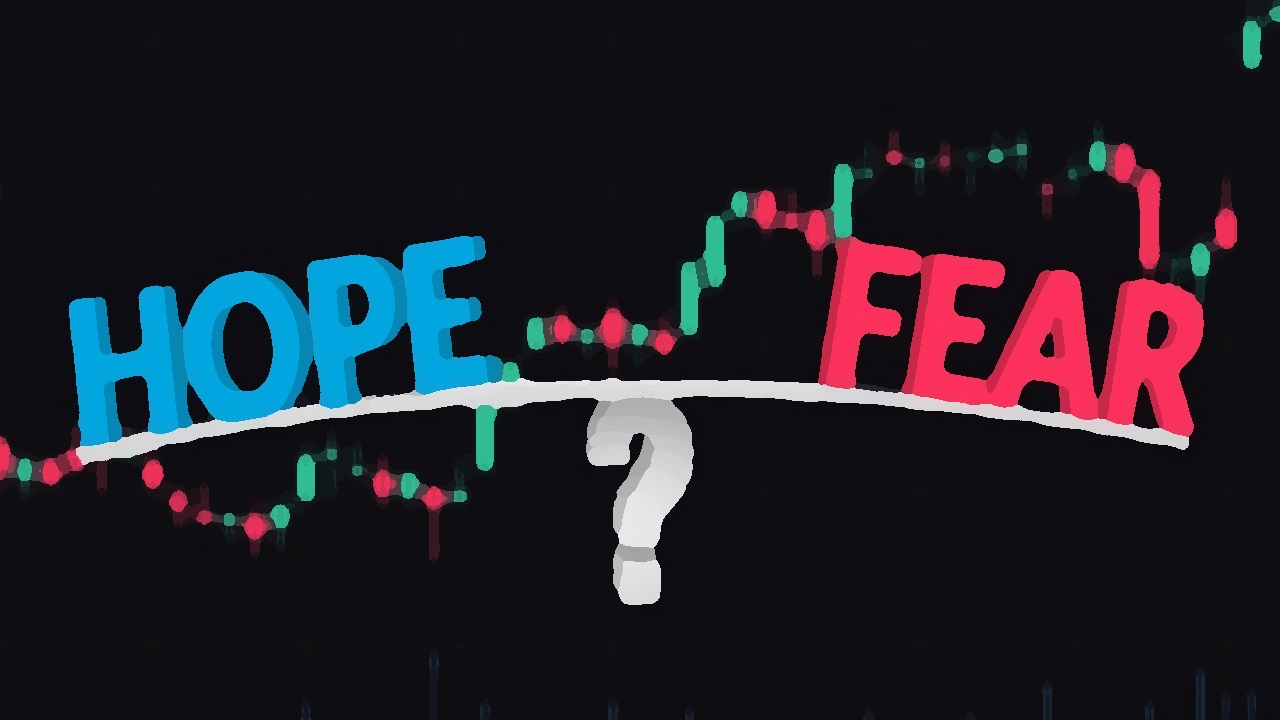Arguably the main two factors in hurting the chances of success in currency trading, are the two innate emotions – hope and fear. Whilst, in moderation, they’re an important make-up of any successful trader, left unchecked, they’ll soon bring any trader back down to reality. Yes, a trader should be hopeful of doing well, and yes, a trader should be fearful of performing badly, but imagine what happens when one places too much hope into a particular trade?
That excessive hope clouds one’s judgement, and instead of sticking to the actual method and rules, (which includes exiting a bad trade), it leads to holding on for far beyond one’s risk appetite. Likewise, with too much fear, the probability for a trader to exit at the slightest sign of potential concern is increased, leaving the trader unable or unwilling to sit through a period of, for example, common consolidation.
Fire and ice is an apt similitude, each one battering down the target. Likewise, the constant hope and fear is hammering its target, i.e. you, the trader. Alas, this can lead to anxiety in some, which is why a proper education and mindset are vital. Thus, if you do plan to get involved with trading currencies, and you have any underlying mental health issue, then it’s obviously a wise move to seek the advice of a medical professional to make sure you’re able to handle the stress that comes with constant and alternate hope and fear, especially when things don’t go to plan (as they often don’t).
A word about the “stop loss” and sticking to it, since it it seems many budding traders aren’t paying much attention to such a basic attribute of money management. It’s imperative to keep control of the amount one can lose each day as percentage of one’s account. Never, and we repeat, never trade without a stop loss. Quite frankly, without decent money management, things can (and do) quickly translate into a downwards spiral. Be prepared for the downturn when trading the foreign exchange market, without opening yourself to unnecessary risks fuelled by emotion, and you will hopefully find that the long term outcome will be far better than if you are rushed, hurried, and not focused on the long term goal. Sometimes it can be useful to visit a forex forum, where one is able to engage with fellow traders, and take advice (especially from the more experienced members), who are more than happy to aid struggling traders with regards to managing their account.
Besides hope and fear, there is another emotion (the elephant in the room actually), which we haven’t mentioned so far. Greed. The key difference between greed and the previous two emotions, is that in general the two former emotions, to a certain extent, are an acceptable part of trading, and actually a trader can be successful long term with them hovering in one’s psyche; however, with greed, it’s usually a binary affair. Either you’re affected by it, or you’re not. For those with a natural disposition towards being greedy, the naked truth is – trading the financial markets is probably not for them. In other professions, for example, soccer, greed can be beneficial, where a prolific striker achieves great goals to games ratio. However, let’s be clear – there is little correlation between trading and any other profession.
Hence, for those looking into trading, if you are tempted by such activities, and you feel you have the ability to prevent your emotions take control, then be ready for a long term process (and hopefully progress!), discuss your plans with professionals and those close to you, and set goals that are realistic. Keep a check on your emotions and in doing so, you can achieve a far better result than if you had simply forged, full steam, into Forex trading without proper preparation and education.


